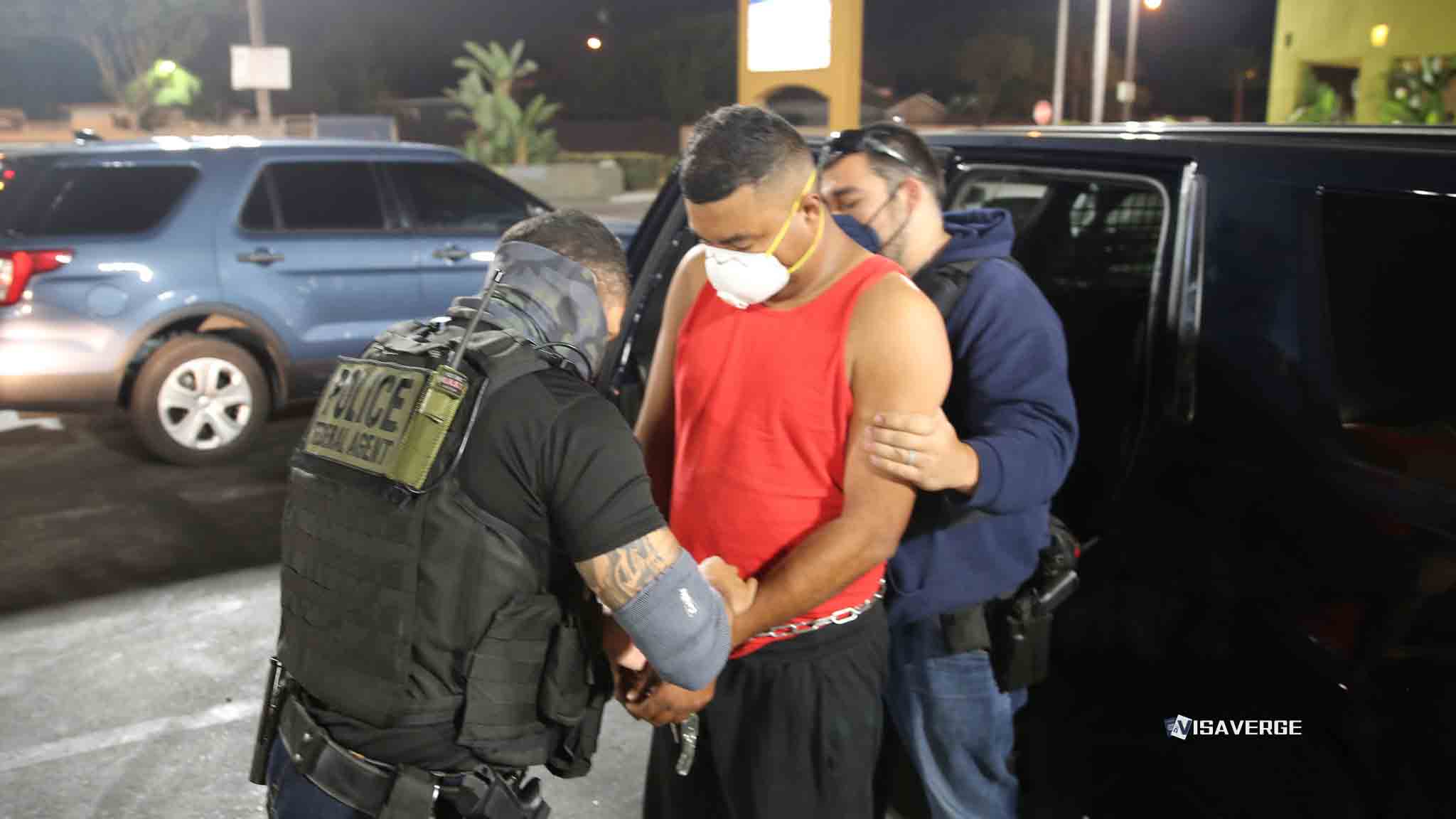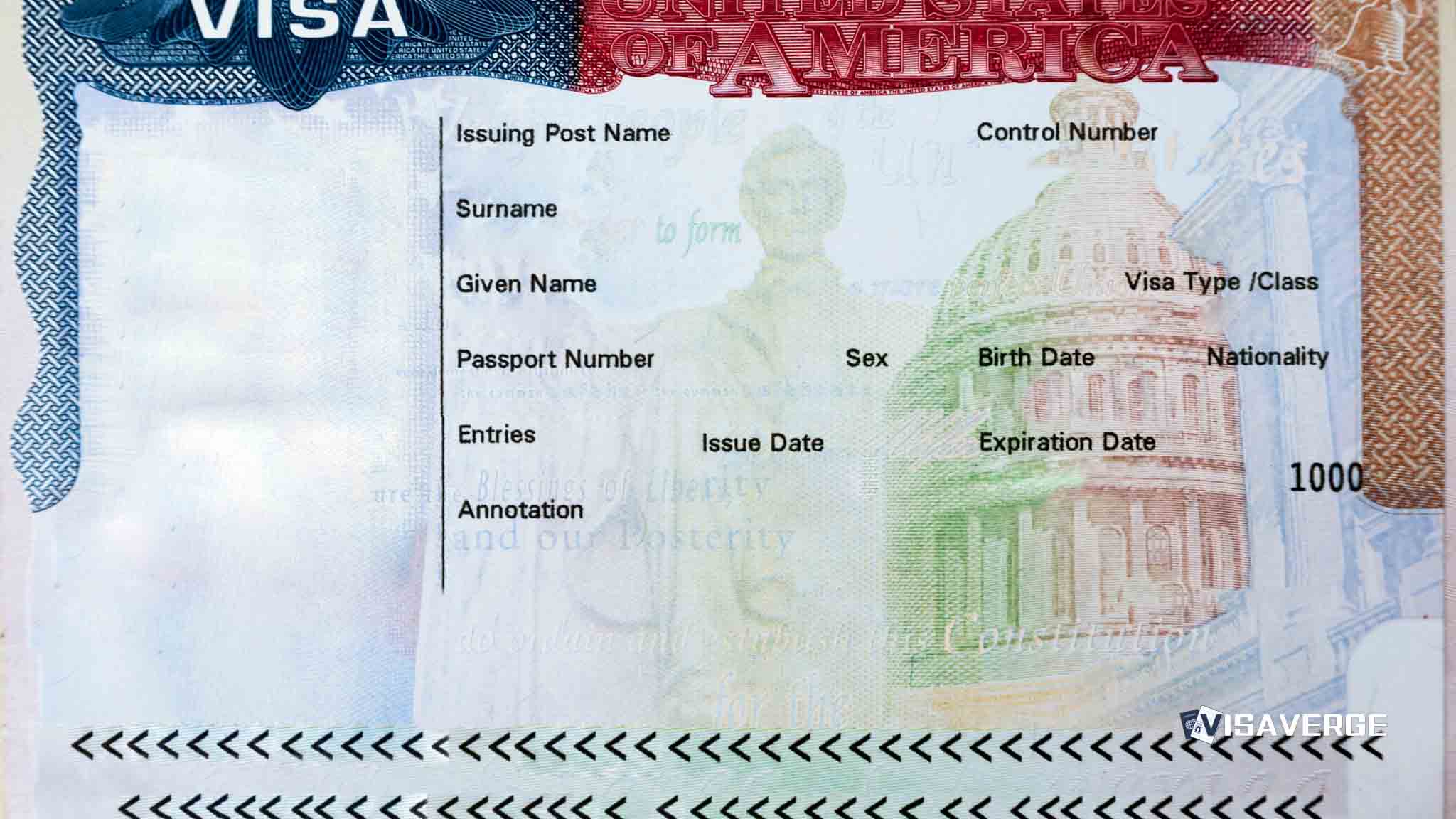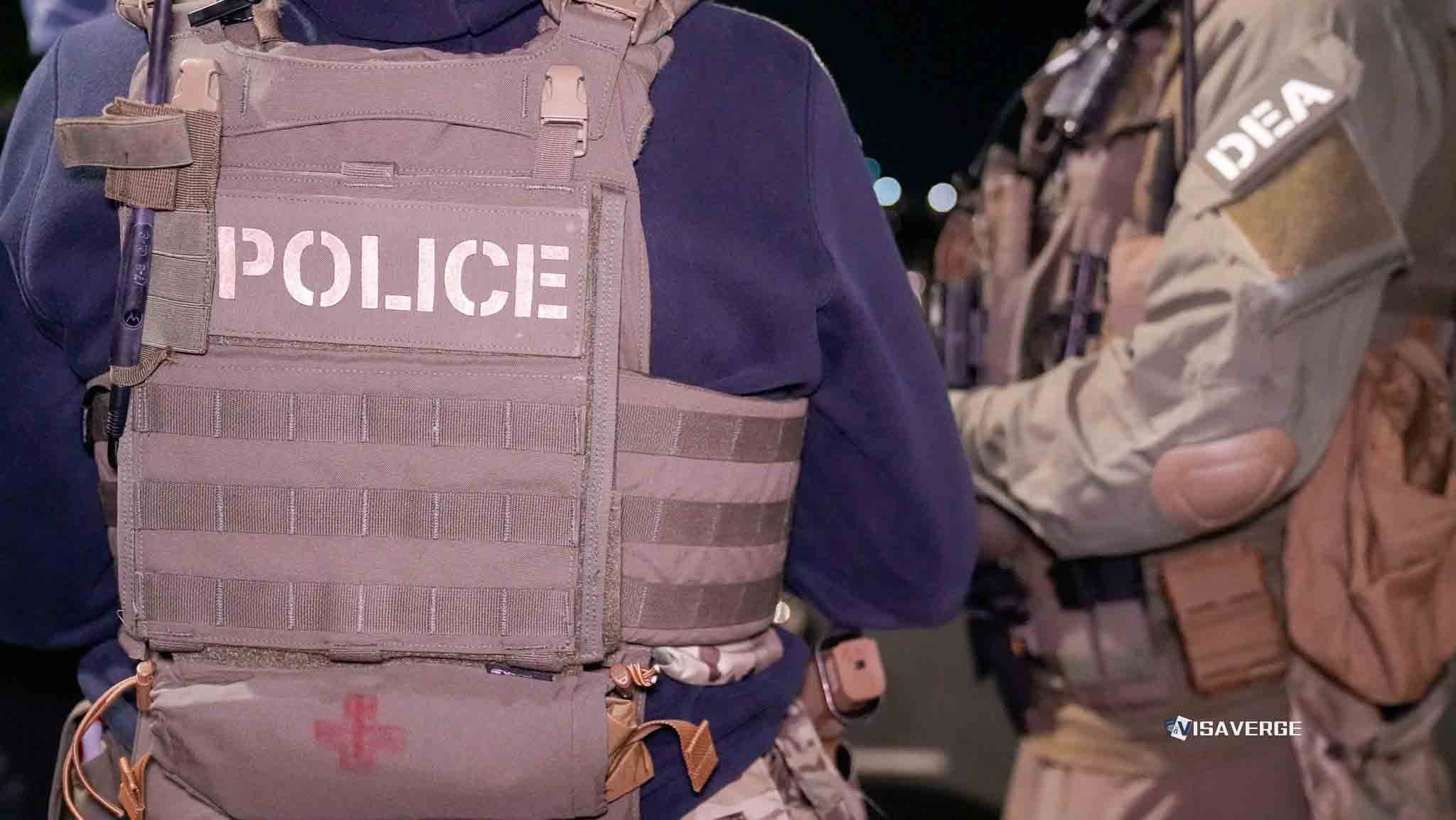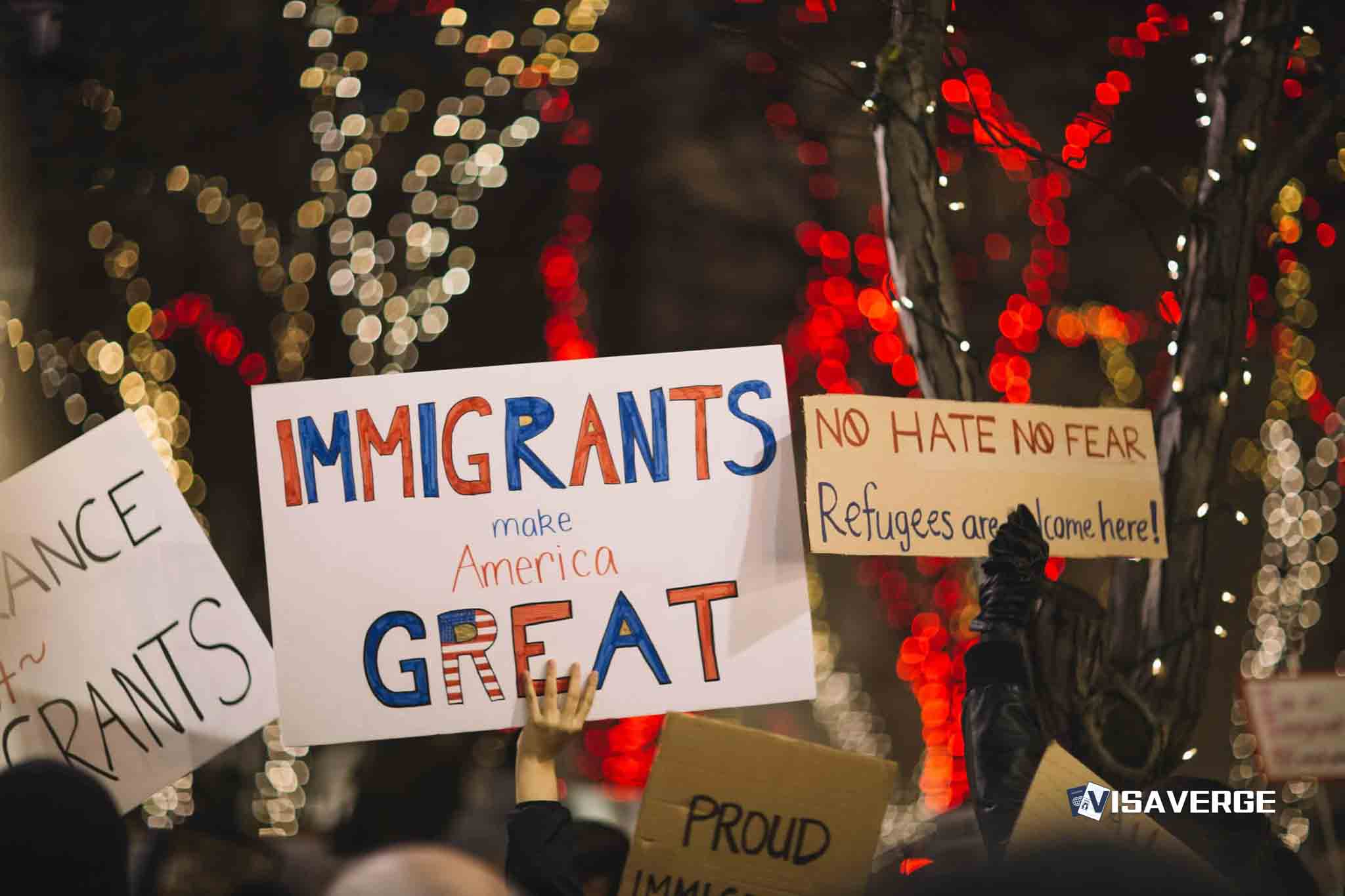(ILLINOIS) Singaporean former child actor and blogger Amos Yee is again at the center of legal and political debate after a brief and chaotic release from an Illinois prison this month ended with his immediate return to custody and renewed focus on his likely deportation from the 🇺🇸 to Singapore. Illinois officials confirmed that Yee, 26, was released on parole on 7 November 2025 from Danville Correctional Center, only to be taken back into custody the same day for allegedly breaking parole conditions.
Fast reversal and immigration implications
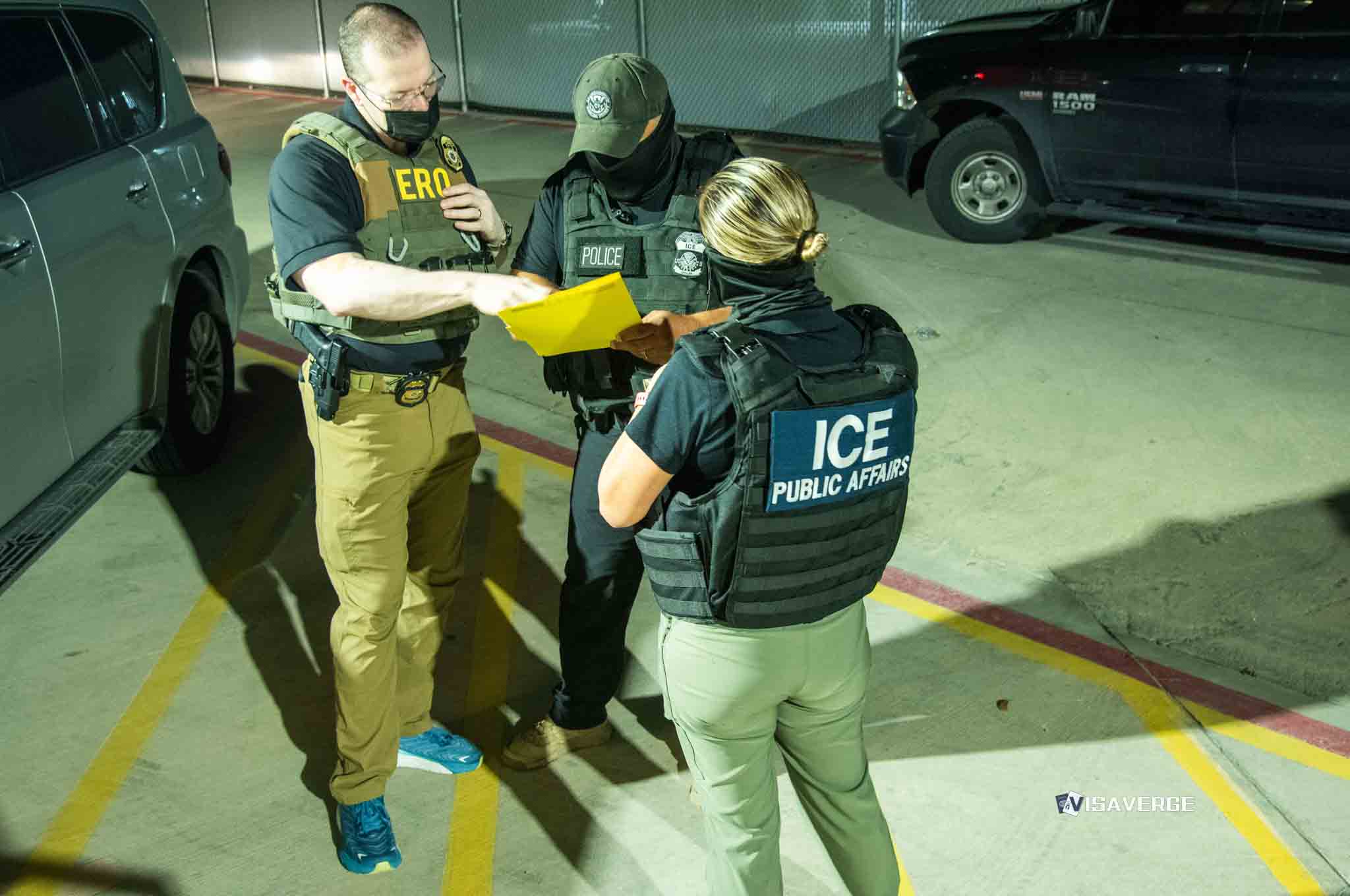
The Illinois Department of Corrections has not publicly detailed which rules Yee is accused of violating, but the rapid reversal means he remains behind bars while immigration questions move to the forefront. According to analysis by VisaVerge.com, the failed parole release is likely to harden the position of federal immigration authorities, who already viewed Yee as a strong candidate for removal based on his criminal record and earlier warnings from judges that he could face deportation and be denied a path to citizenship in the 🇺🇸.
Yee was sentenced in late 2021 to six years in prison after pleading guilty to two counts involving child grooming and child pornography, with 16 other charges dropped under a plea bargain. The conviction marked a sharp turn for a figure who first became known internationally as a teenager criticizing Singapore’s leaders online, then seeking asylum in the 🇺🇸 in 2017 on grounds of political persecution.
- Supporters once framed him as a free-speech symbol.
- Victims and many observers now point to the harm behind the crimes that led to his imprisonment.
How criminal convictions affect immigration status
When Yee entered the Illinois prison system, lawyers and advocates already expected immigration consequences to follow. Under US immigration law:
- Certain sex offenses and crimes involving minors can be classified as “aggravated felonies” or “crimes involving moral turpitude.”
- Those classifications can make a non‑citizen deportable after completion of their sentence.
- The Department of Homeland Security (DHS) commonly begins preparing a removal case while a person is still in state custody, which can include placing an immigration detainer so the individual is transferred to federal custody upon release.
Federal officials have not issued detailed public statements on Yee’s status, but his case closely matches the profile of people placed into removal proceedings after serving time. In such cases:
- An immigration judge decides whether the person should be ordered removed.
- The judge may consider any past grants of protection (for example, asylum), but a serious criminal record can override earlier relief.
- The US government’s general description of how removal cases work is available on the USCIS removal proceedings page.
Current official stance and immediate prospects
For now, officials in Illinois say only that Yee “faces imminent deportation” once he ultimately leaves Danville Correctional Center. That wording suggests state and federal agencies expect him to be handed over to immigration officers rather than released into the community under state parole.
- The failed parole attempt on 7 November appears to have done little to change that trajectory.
- His transition out of prison is expected to be tightly controlled.
Potential consequences in Singapore
The prospect of deportation raises questions in Singapore, where Yee’s legal status and future remain unclear.
- Yee is still a Singapore citizen; Singapore does not strip citizenship solely because of a conviction abroad.
- Singaporean officials could investigate whether his offenses overseas also violate Singapore law, potentially exposing him to fresh proceedings if he is returned.
- Lawyers in Singapore say the government will likely review Illinois court records before deciding any action.
Reaction from human-rights groups and observers
Human-rights groups that once defended Yee are now divided.
- Some former supporters say his crimes mean he no longer deserves political backing.
- Others worry that deportation could still put him at risk if Singapore treats his earlier political speech as a separate offense.
“You can condemn the sexual offenses and still be worried about how another government might treat him once he’s back,” one regional activist said, speaking on condition of anonymity because of the sensitivity of commenting on Singapore’s leadership.
Legal intersection: asylum, criminal law, and public opinion
Yee was granted asylum by an American immigration judge in 2017, a decision that drew strong criticism from Singapore’s government at the time. Important points:
- Asylum is meant to protect people from political persecution, but it is not absolute.
- Under US law, certain serious crimes can bar someone from retaining asylum and can lead to termination of protection.
- Termination or removal typically occurs in immigration court after a criminal conviction.
Experts note the failed parole release could affect how an immigration judge views Yee’s credibility and risk to the community. Parole is a supervised release period with strict rules, often including:
- Where the person must live
- Who they may contact
- Restrictions on internet access or contact with minors
Violating those rules, even briefly, can weigh heavily in later hearings.
“If you can’t follow parole conditions, it becomes harder to argue you’ll obey immigration conditions or that you’re safe to release,” said one Chicago-based immigration attorney who has worked on criminal–immigration cases but is not directly involved with Yee.
Broader context and parallel events
While the Yee case has unfolded in Illinois courtrooms and prison offices, Singapore’s name surfaced in a different context this week on the global stage.
- At the Miss Universe 2025 pageant in Bangkok on 21 November 2025, Mexico’s Fatima Bosch won the crown.
- The contest was rocked by scandal, including a public clash during the sashing ceremony and an alleged gambling promotion that triggered a Thai police raid.
- Singapore’s representative was not at the center of those disputes, but the country’s image abroad was again shaped by events beyond its borders — from a disgraced former blogger in a Midwestern prison to a global beauty contest under investigation.
For Singaporeans watching from afar, the contrast is striking:
- Yee’s likely deportation underscores how citizens who move overseas remain bound by their home country’s laws and politics.
- Bosch’s victory in a scandal‑hit pageant shows how national reputations are formed and challenged in global arenas that mix entertainment, law, and public morality.
Next steps and questions to watch
Back in Danville, the immediate questions around Amos Yee focus on timing and process:
- How long will he remain in state custody?
- When will federal immigration officers take charge?
- Will he have a fresh chance to argue against deportation based on fear of return to Singapore?
Any such claim would need to persuade an immigration judge that the risk he faces upon return is separate from, and greater than, the punishment tied to his criminal conduct. With his brief parole release already revoked, those arguments may soon move from speculation to the courtroom.
Amos Yee was briefly released on parole from Danville Correctional Center on 7 November 2025 but was immediately returned to custody for alleged parole violations. Yee, sentenced to six years in 2021 after pleading guilty to child grooming and child pornography charges, now faces likely federal removal proceedings. Immigration authorities typically prepare removal while a person remains in state custody; an immigration judge could terminate prior asylum protection given the severity of his convictions.




